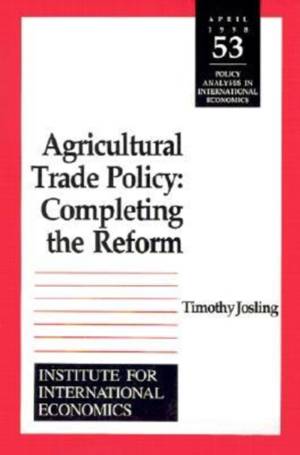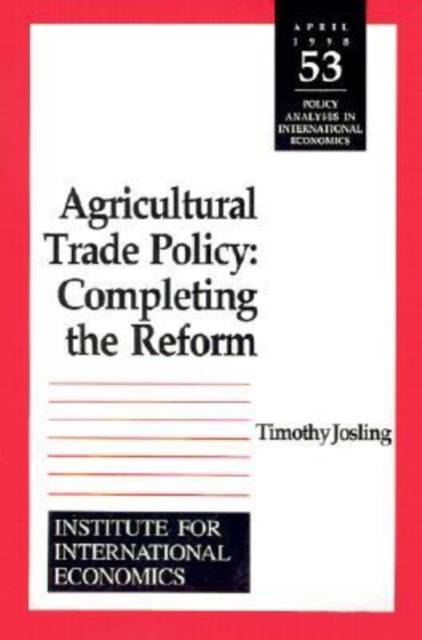
- Retrait gratuit dans votre magasin Club
- 7.000.000 titres dans notre catalogue
- Payer en toute sécurité
- Toujours un magasin près de chez vous
- Retrait gratuit dans votre magasin Club
- 7.000.000 titres dans notre catalogue
- Payer en toute sécurité
- Toujours un magasin près de chez vous
Description
The Uruguay Round trade negotiations marked a historic turning point in the reform of agricultural trade. The Uruguay Round Agreement on Agriculture (URAA) replaced nontariff barriers with bound tariffs, curbed export subsidies, and codified domestic agricultural programs. Unfortunately, the URAA bound many of the tariffs that replaced nontariff barriers too high, it legitimized export subsidies, and it left the domestic farm policies of the major industrial countries largely untouched.
Fortunately, regional trade institutions have also begun to grapple with agricultural trade liberalization. Agriculture was featured in the Mercosur agreement, in recent agreements between the European Union and the countries of Central and Eastern Europe, and in the North American Free Trade Area (NAFTA). Plans for broad supraregional trade structures, such as the Asia Pacific Economic Cooperation (APEC) forum and the Free Trade Area of the Americas (FTAA), have also dealt with the inclusion of agricultural trade. Meanwhile, in developing and middle-income countries, unilateral agricultural policy reforms have been part of recent economic policy changes. However, in the industrial countries, agricultural policy reform has languished in the face of much domestic opposition. But the reform of the European Union's Common Agricultural Policy (CAP) in 1992 and the 1996 Farm Bill in the United States seems to have ushered in a new era of relations between government and agricultural groups. The author points out ways that multilateral, regional, and unilateral paths could be coordinated to liberalized agricultural trade. He proposes a set of multilateral talks that would benefit from agricultural reform at all levels and complete the job begun at the Uruguay Round.Spécifications
Parties prenantes
- Auteur(s) :
- Editeur:
Contenu
- Nombre de pages :
- 132
- Langue:
- Anglais
- Collection :
- Tome:
- n° 53
Caractéristiques
- EAN:
- 9780881322569
- Date de parution :
- 01-04-98
- Format:
- Livre broché
- Format numérique:
- Trade paperback (VS)
- Dimensions :
- 155 mm x 232 mm
- Poids :
- 226 g







